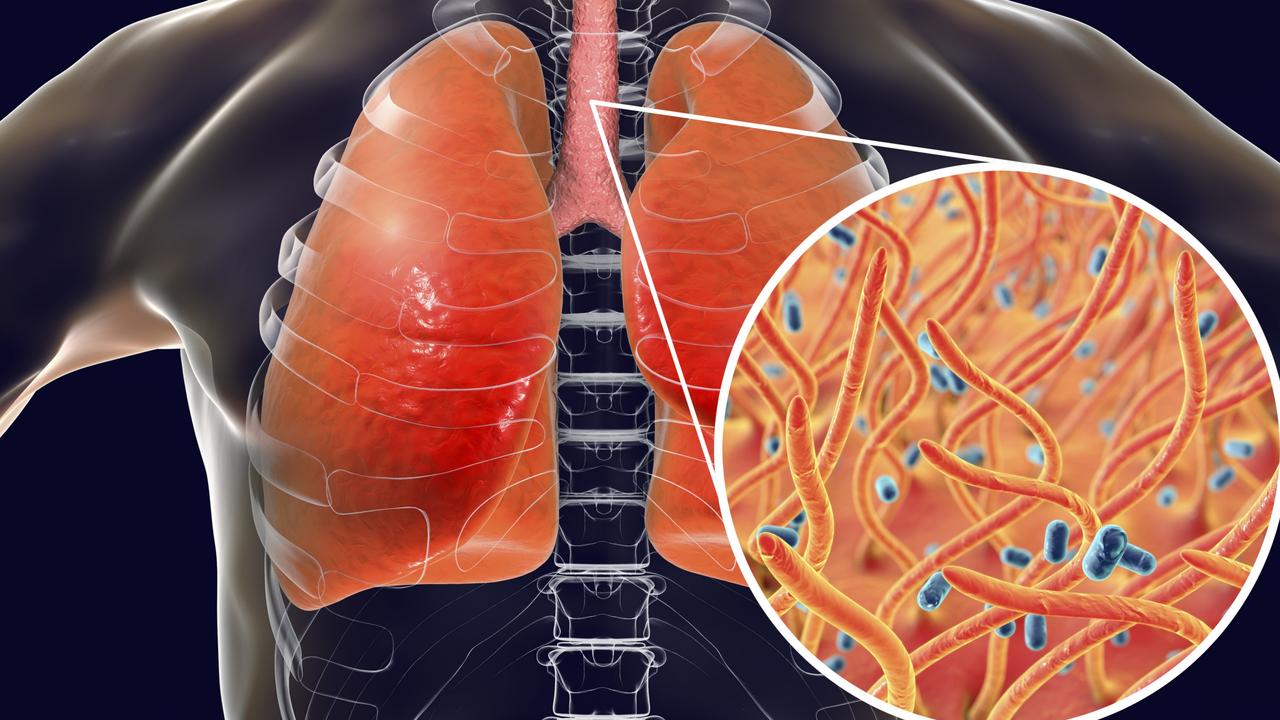Toowoomba NDIS participant with pregnant wife faces stay in hospital due to funding issues after birth
An NDIS participant whose wife will give birth soon faces a stint in hospital after his child is born, all due to a lack of “urgency” from the government scheme.
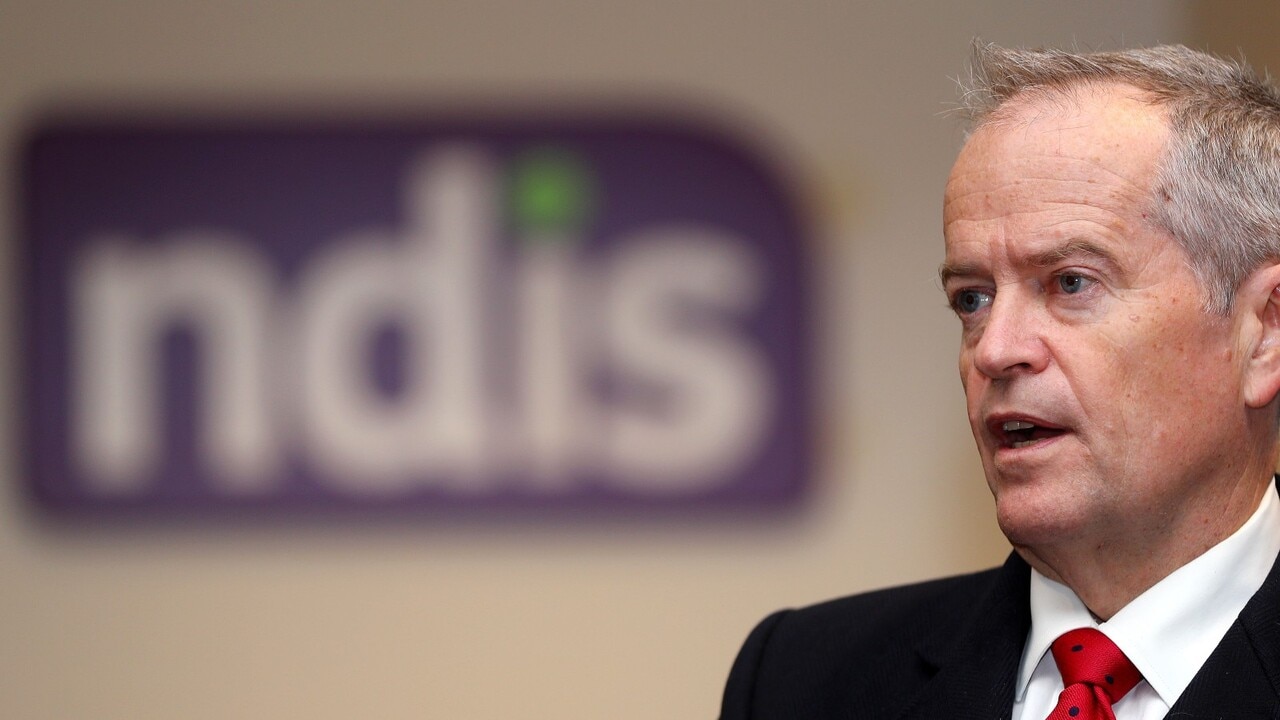
Health
Don't miss out on the headlines from Health. Followed categories will be added to My News.
Nathan Slachter and his wife Kerryanne should be busy preparing for the birth of their child in just a few short months, but instead they’re terrified their family will be ripped apart.
The pair already has a nursery organised at their home in Highfields, north of Toowoomba, complete with crib, toys, books and little onesies.
“I would be more excited if it wasn’t for the NDIS,” 31-year-old Nathan who has cerebral palsy said.
His loving wife of five years Kerryanne is also his primary unpaid carer.
“You can’t even relax and just enjoy the pregnancy, we’ve got to wonder whether or not we’re going to get support,” he said.
The couple faces being split apart after their baby arrives due to what advocates say is a failure by the National Disability Insurance Scheme to properly support both Nathan and Kerryanne after the baby arrives.
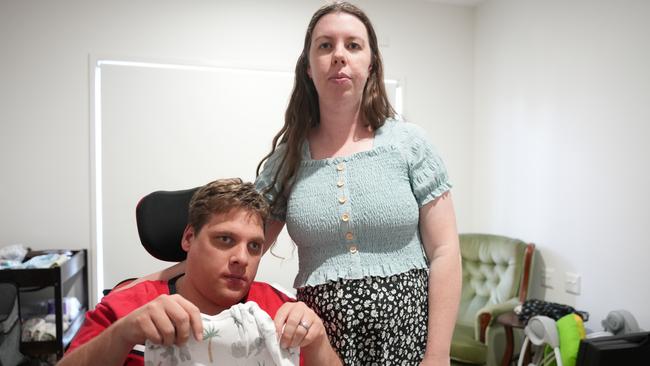
Mr Slachter has called on the beleaguered scheme to fast-track further temporary individual supports in his plan, which were denied as part of a snap review earlier this year.
For its part, the NDIS says the review increased Mr Slachter’s plan, and includes funding for him to complete more assessments needed to appeal it.
Mr Slachter has called for a temporary increase to his time with support worker from eight hours a day currently to 16 to allow Ms Slachter to care for a newborn.
If it doesn’t arrive in time, Mr Slachter risks being forced to go into respite care or even the Toowoomba Hospital as a social admission, which the pair say would be a devastating blow for both of them.
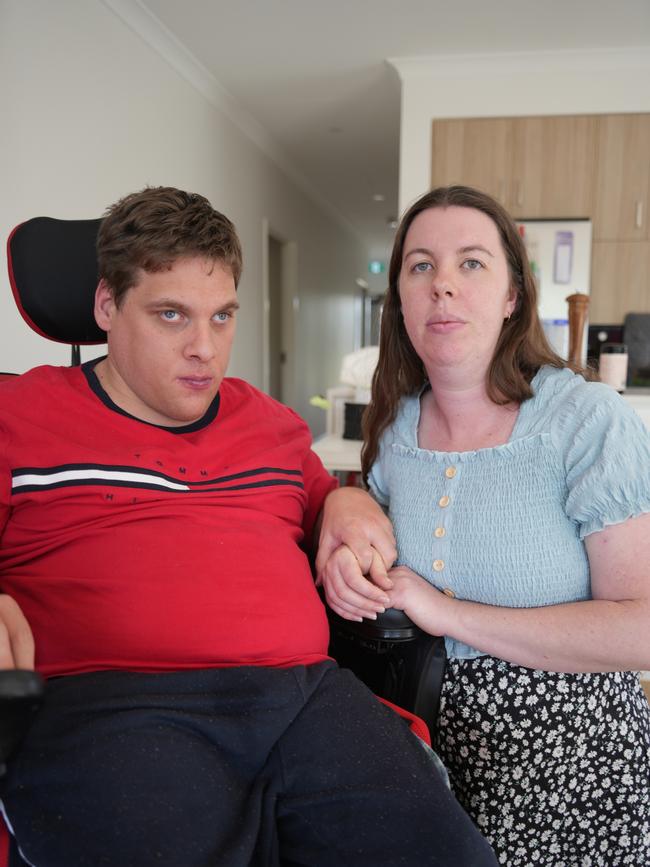
“My needs have definitely increased, I’ve declined to the point where I’m essentially wheelchair bound,” he said.
“My support co-ordinator said if I run out of funding and my informal support can’t take care of me, basically I’m put into hospital as a social admission.
“I can tell you because I’ve got severe anxiety and PTSD on top of having a physical disability, (if I got to hospital) I’ll end up hurting myself, hurting staff members and possibly trying to escape.
Mr Slachter said the idea he couldn’t stay in his own home during the first few months of his child’s life was now a painful reality.
“When it comes to respite, the NDIS’ answer is to take me away from the home, but the thing is I want to be actively involved — I don’t want to leave my home and I shouldn’t have to,” he said.
“I’d be so depressed if I found out I wasn’t getting the proper amount of support in order to be a father and actually achieve my NDIS goals and actually live a normal life.”
“I don’t want to say I can just take care of him for 24 hours, because I couldn’t commit to that and then he would suffer, because he can’t do anything, he can’t go to the toilet on his own,” Ms Slachter added.
“It’s a lot to put on someone who’s already going to be caring for a baby.”
The couple plans to appeal against the plan review, which is likely to be resolved long after the baby is born.
Lack of urgency in NDIS slammed
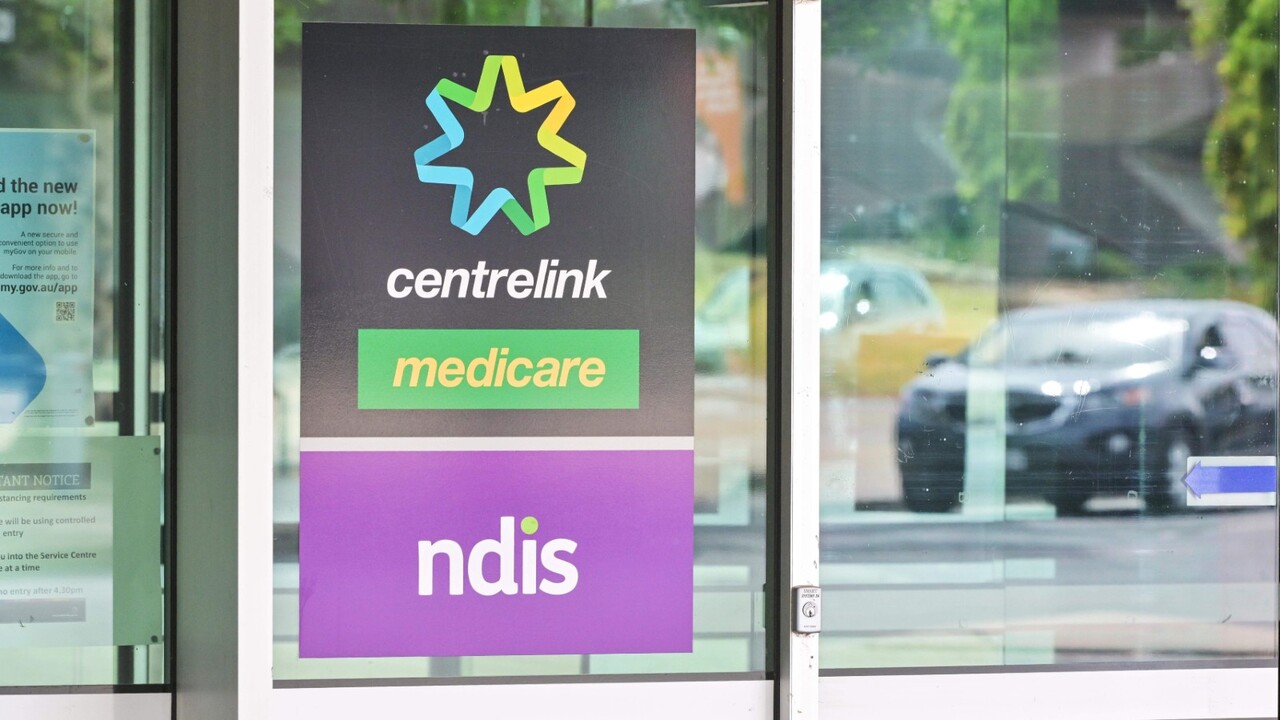
Regional Queensland disability advocate Alyce Nelligan said the lack of urgency from the NDIS to respond to participant’s changing needs had been a hallmark of the scheme both during the Morrison and Albanese governments.
“Their situation has come about for one simple reason — the NDIS does not recognise urgency,” she said.
“This is a massive flaw within the system, when things go wrong, break or a participant deteriorates then they cannot wait months for it to be addressed.
“Currently participants have to put in a change of circumstances review, which under the Labor government has blown out to a minimum six month process.”
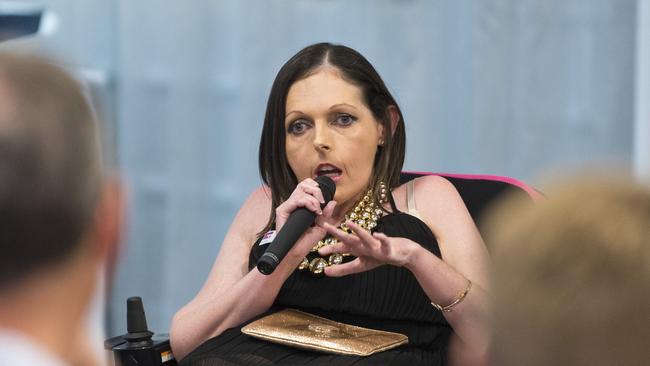
Ms Nelligan urged the NDIA, the agency responsible for the scheme, to develop a better triaging system to respond more critically to people’s needs.
“The NDIS must create a critical response team that can triage requests and some contingency must be in the plans, (which) also must be funded and calculated correctly,” she said.
“It is unacceptable that the NDIS cannot respond quickly when someone’s equipment breaks, their carer is sick, injured or passes away or they have a breakdown in informal supports.
“In the case of Nathan and Kerryanne, the NDIS has taken what should be a joyous change in their lives and made it one fraught with stress, fighting and bureaucracy.”
Ms Nelligan also argued that by the NDIS’ own standards Mr Slachter should be funded for 24-hour care, due to his limited physical capacity.
Long fight against bureaucracy
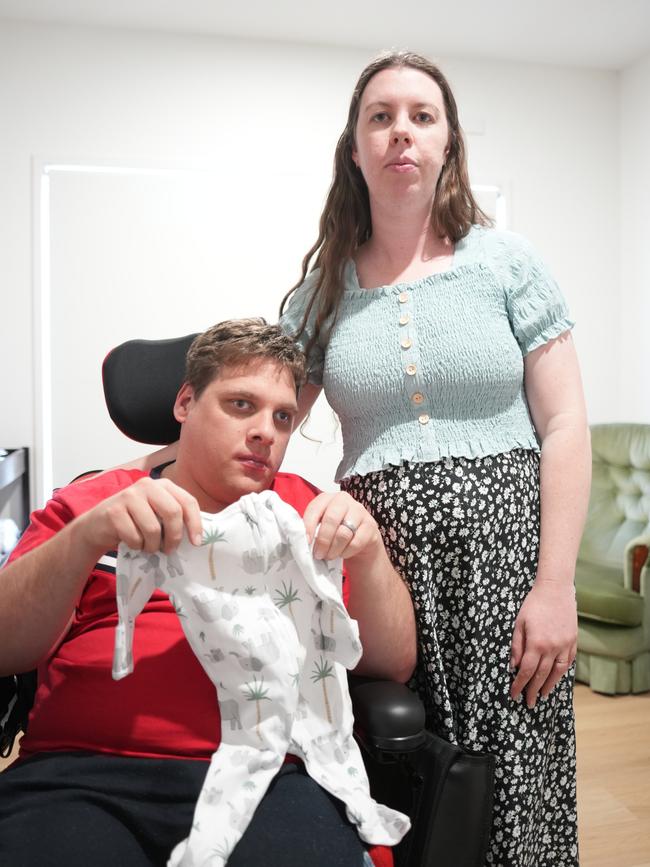
The Slachters say the denial of extra funding during a critical moment in their lives is the latest roadblock placed in front of them by the NDIS, which they say has repeatedly denied Nathan funding and forced him to prove he has a disability at every turn.
“In the latest email that we got it doesn’t even mention the additional hours that we asked for,” Ms Slachter said.
“It just says you’ve got eight hours a day and anything else, do a functional capacity assessment because we need more evidence and there was no explanation on what they needed, what specifically they’re asking for.”
Ms Nelligan said a new functional capacity assessment for Mr Slachter was also unnecessary, since it was his wife’s circumstances that were changing.
“The NDIS relies far too heavily on the informal carers in participants’ lives and carers end up burnt out,” she said.
“Then we see people going into the health system or aged care — this costs far more to manage than if carers were correctly supported.”
After the pair secured specialist disability accommodation in Highfields, Mr Slachter was initially rejected for funding and had to spend months in appeal before finally securing it in 2022.
“They didn’t even believe I was disabled enough to get SDA (and) they also told me that I could exercise my disability away, or that I could transfer myself with blocks with equipment,” he said.
Mr Slachter said the red tape involved with the scheme was dehumanising and antithetical to what the scheme had been sold to participants.
“It makes you honestly feel like a dollar sign or a number – they have to put a price on my life, when my rights as a human being are inalienable,” he said.
“(When I was introduced to it in 2018), they said the NDIS is going to be a blank check, all you need to do is tell us what you need and justify based on your disability – doesn’t matter what the cost is.
“Now, it’s basically a numbers game.”
Ms Slachter agreed, saying every step forward to improve her husband’s life had been a slog.
“Looking at someone like Nathan, you would think everything (he needs) is handed to him, but I have had to fight tooth and nail since the moment I met him for everything,” she said.
“Every single thing that we have requested, I’ve had to fight for it, had to do multiple reports from OTs and physios – you name it.”
Senator slams government’s NDIS ‘savings’
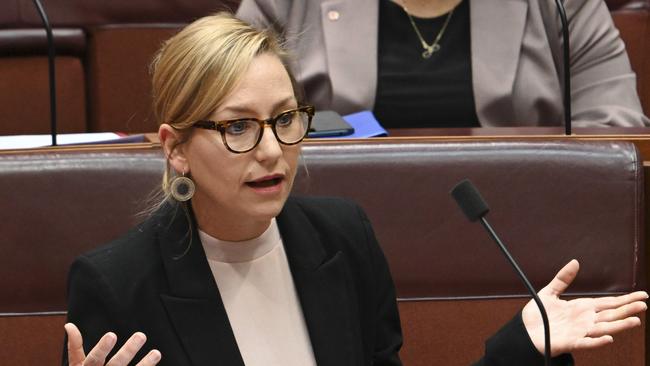
The latest battle comes as the NDIS minister Bill Shorten revealed the federal government had saved $1bn from the scheme due to a series of changes that were slammed by disability advocates.
Greens Queensland Senator Larissa Waters, who is lobbying for the Slachters’ case down in Canberra, said the changes had come at the expense of participants’ quality of life.
“Disabled people, those who love them, and anyone who cares about the integrity of government social services should be heartbroken by Nathan’s story,” she said.
“The NDIS is not adequately supporting Nathan or his pregnant wife.
“The NDIS should be better at responding to changing circumstances, so this family can stay together and be supported before and after their baby is born.”
NDIS responds to criticisms
In a statement, a spokesman for the NDIS said Mr Slachter’s plan had increased under the review, arguing his one-on-one daily supports could be “used flexibly”.
“The National Disability Insurance Agency’s priority is ensuring all eligible participants, like Nathan, receive the disability-related supports they need,” the statement said.
“The agency acknowledges the vitally important role carers play in supporting many Australians with disability.
“Nathan has significant NDIS supports, which were increased at a recent plan reassessment to reflect his change in circumstances.
“Nathan now has 10 hours per day of 1:1 support (including community access), which he can use flexibly if he needs more or less during certain periods over his 12-month plan.
“Nathan can request a review of the recent decision and may wish to provide additional information to support any request for increased supports.”
All funding decisions are made in accordance with the NDIS Act.
More Coverage
Originally published as Toowoomba NDIS participant with pregnant wife faces stay in hospital due to funding issues after birth




